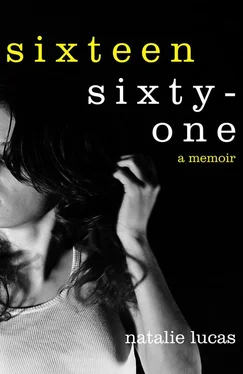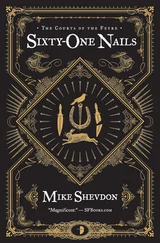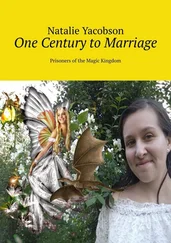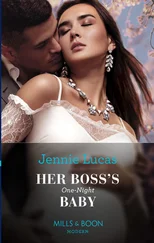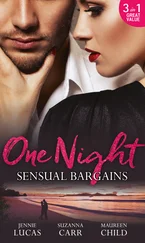He was crying fully now and, borrowing a gesture learnt from films rather than life, I walked over to his chair and wrapped my skinny arms over his shoulders.
‘What happened to Marie-Anne?’ I asked softly.
‘She hanged herself in our flat. The landlady found her. I wasn’t even allowed to go to the funeral.’
But I’m getting ahead of myself. Before I learnt about Suzanne and the others, before I’d committed too fully to my second life, Matthew and I had to organise my Bunbury.
‘It’s regrettable, but I think it would be safest if we offered your mother a reason for you to come here so often.’
‘What sort of reason?’
‘Well, perhaps you could work for me. I’ll employ you to sort my books and maybe put my horseracing accounts on the computer. How about that?’
I’d never thought about what Matthew ‘did’. I knew he’d once been a journalist and was vaguely aware he now made money offering betting tips to a mysterious collection of ‘clients’, but generally I imagined he spent his days reading poetry and waiting for my visits. In contrast to my workaholic parents, Matthew’s life was so theoretical and luxurious that the concept of him sat in front of a computer concentrating on paid employment was almost laughable.
‘I really could do with sorting through my books – both the horsing ones, and these,’ he said, brushing his hand over an old edition of To the Lighthouse . ‘I’d like them in order throughout the house. We could do it together and drink cups of tea and discuss the dead poets as we go. As far as your mother’s concerned, you’d just be earning a bit of pocket money helping out a scatterbrained old gambler.’
Thus I began ‘working’ for Matthew. The legitimacy of this work was never clear; sometimes he would thrust a small amount of money into my hand as a kind of payment ‘to show Mummy’, but most of the time I just spent my Saturday and Sunday afternoons reclining on his chaise longue reading scraps of verse from the anthologies we were meant to be alphabetising.
Sometimes I felt a pang of guilt when I returned home and my mum asked me how the afternoon had gone, if we’d got much done. But mostly I rationalised that it wasn’t a lie as such and, anyway, such measures were only necessary because she and everyone else who thought it odd for a teenager to spend so much time with a sexagenarian were so steeped in the dismal unreality of the world they couldn’t see the true beauty of friendship. Besides, Matthew was adept at sensing my angst and, whenever I began to slip too far into the vicinity of guilt and shame, I would find an email waiting in my inbox, pulling me back to the beautiful world of literature and poetry:
From: Matthew Wright
To: Natalie Lucas
Sent: 12 July 2000, 08:27:31
Subject: Your worries
I know you struggle with the lies, but never forget what is real. You feel guilty about your Ma, who herself feels guilty about you and her Ma and all of the world, simply because she’s trying too hard. She can’t see the beauty.
But you, my angel (my Uncle), can. And that is a gift (for me as well as you).
Edmond Rostand said: ‘The dream alone is of interest.’
So, my darling, let us dream.
MW
*
About halfway through the summer, just after my sixteenth birthday, we began discussing love. We read the Romantics, then moved on to Whitman and finally picked up some collections by Leonard Cohen. I liked the singsong neatness of Blake and the hallmark sentiments of Burns, but Matthew would always reach for Leaves of Grass or mumble the lyrics to ‘Death of a Ladies’ Man’.
We discussed unrequited, inexpressible and forbidden love; we talked about communities running people out of town, countries stoning women for infidelity and religions turning their backs on faithful worshippers. We watched The Wicker Man and flicked through the writings of the Marquis de Sade. We reread extracts from Brave New World and talked about the concept of everyone ‘belonging’ to one another. He told me monogamy was just as abstract an idea as polygamy and we discussed his relationship with Annabelle once more. We talked about the line between friendship and love, about why the world has to be so blind to the possibilities of their overlap. Sometime in late August, Matthew told me he loved me and I wrote in my diary that he was not being improper.
A lingering hug became our ritual goodbye. Back in my bedroom I would miss his arms and want the safe feeling of being enveloped by a true friend. We swapped ‘I love you’s in emails and notes through the letterbox. We knew the others wouldn’t understand, but we also knew that it was true and innocent.
My Bunbury evolved so that once I returned to school to begin the sixth form I had permanent employment archiving Matthew’s racing tips at the weekends. I never went near his computer, but sometimes he’d tell me about reading the form and calculating probabilities so I could blag my way through knowing about gambling. Through a slow accumulation of half-truths and almost-lies, Matthew and I constructed a wall around our friendship that allowed us to spend intense afternoons discussing Uncles, love and poetry. The neighbours, my parents and his in-laws ceased raising their eyebrows and gradually came to expect us to sit together at parties, to dawdle behind or step out ahead on Sunday afternoon walks and to be found together when we were nowhere else.
My diary during that time was a scruffy composition book I’d covered with an angsty painting on squared graph paper. I’d bought it as I walked through the town one Thursday in Year 11 after Josephine Cuthbert had taunted me about my crush on Adam Hound and my brother had poked me in the arm for the duration of our bus ride.
Arriving home, I’d slammed the front door and ran up to my room at the top of my house. I’d spread my paints and brushes over the floor and began making crude, angry marks. After a while, my mum had knocked tentatively at the door. She asked what was wrong and listened sympathetically for a while as I sobbed and tried to describe the hideous impossibility of school and life and myself.
When I paused to hiccup my breath, she glanced towards the window, sighed, and said, ‘Well, I’m sure it will get better. It could be a lot worse – at least you have food on your plate. Dinner will be at seven.’
She left and I grabbed a pen. My first entry looked like this:
21/03/2000
‘Maybe it’s not the school,’ she said. ‘It’s happened before.’ Does she think I don’t know that? Does she think that every day I don’t wish I could fit in, just lazily walk into school and be greeted by a few proper friends instead of worrying who I’m going to burden myself with next?! I hate it. I hate school. I know I’ve never really been able to settle down with good friends, not at primary school either, but I just think that if I reinvent myself one more time then maybe someone will like me. And sixth form is different. If I could just switch schools one more time I shouldn’t get so much of the ‘keen bean’ stuff. It’s only a week until the end of term, thank God. Maybe I’ll make it.
Why the hell am I writing this crap? I hate diaries. They’re pointless and I always write in them for a month or two and then stop. It’ll probably be the way of this one. I just don’t get the point of writing something no one is ever going to read. But then it scares me to rely on memories. I don’t want to forget things, especially not the bad stuff, because that’s what reminds you not to live in the past but the present.
I don’t think I live in either, though. Half the time I seem to be daydreaming: thinking, scheming, planning. And then when I wake up it all hits me again and I get a great wave of depression at the sorry facts of my life.
Читать дальше
